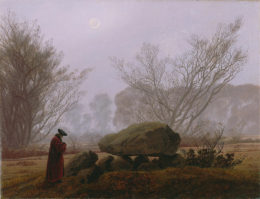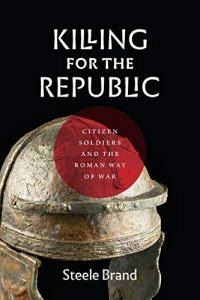Counter-Currents presents a new video of Greg Johnson’s essay “Blaming Your Parents,” about why it’s a bad idea to blame your misfortunes on your upbringing or genetic heritage. (more…)
Tag: self-actualization
-
73 words / 10:18
Greg Johnson has published a recording of himself reading his 2018 essay “Blaming Your Parents,” on the fallacy of blaming one’s parents for one’s misfortunes, and it is now available for download and online listening. The original essay is currently being featured in Counter-Currents’ new Classics Corner (see the right-hand sidebar). (more…)
-
January 21, 2022 Greg Johnson
La politique identitaire blanche est morale, Partie 2
Partie 2 sur 3 (Partie 1, Partie 3)
English original here
La plus grande question que nous devons traiter avant que les gens puissent accepter la politique identitaire blanche n’est pas de savoir si elle est inévitable ou si elle est nécessaire, mais si elle est juste. Les gens refuseront de s’incliner devant l’inévitable s’ils pensent que c’est la mauvaise chose à faire. Ils refuseront de faire ce qui est nécessaire s’ils pensent que c’est la mauvaise chose à faire. (more…)
-
5,924 words
Part I here, Part II here, Part III here, Part IV here, Part V here
The average European is not yet very concerned that his country is slowly sinking in the quicksand of the globalist system. Demographic collapse and deindustrialization are truly deadly threats, but their effects manifest themselves gradually. One can make adjustments and ignore impending danger, much like the proverbial frog being slowly boiled alive. (more…)
-
Editor’s note: This is a transcript of Millennial Woes’ speech at the 2017 London Forum. We would like to thank Hyacinth Bouquet for this transcript. (more…)
-
1,662 words
Dissidents face a choice: Either extricate themselves from the system through lifestyle design, self-sufficiency, and independence, or suffer whatever consequences will be coming to them in the increasingly urban, non-white, anti-male society of the future. (more…)
-
1,648 words
On the train ride home this weekend, I ended up talking with a drunk woman about the concept of happiness. Although brief, the conversation reminded me of Giacomo Casanova’s memoir The Story of My Life. As I have gotten older, this memoir has reminded me not to let certain vices ruin my life. While each person (more…)
-
This is an attempt to understand the psychology of male wallflowers.
A “wallflower” refers to a girl who waits . . . and waits . . . and waits off to the side for a fellow to ask her out on the dancefloor. Some girls are wallflowers because they are unattractive. But others are just a bit too modest, shy, and diffident. (more…)
-

Caspar David Friedrich, Wall at Dusk, 1837-40.

Caspar David Friedrich, Wall at Dusk, 1837-40.
3,000 words
My ancestors arrived in the Tidewater region of this continent around 400 years ago, and lived and died almost entirely beneath the Mason-Dixon line. As a Catholic, a Southron, and an Anglo-American, I am filled with sorrow and impotent rage at the sight of my forebears being demonized by those who are so manifestly inferior to them. (more…)
-
3,735 words

3,735 words

No man can serve two masters: for either he will hate the one, and love the other; or else he will hold to the one, and despise the other.
— Matthew 6:24
There must be an immediate and permanent cessation of all immigration into our nation, from this point forward. We do not need immigrants from anywhere, for any occupation, especially given that many have no occupation. (more…)
-
4,306 words

4,306 words

Porco Rosso is one of the more famous Studio Ghibli films, released in 1992. It is the midpoint of an unofficial Miyazaki trilogy examining flight as a method of personal and national liberation, beginning with 1989’s Kiki’s Delivery Service, and concluding with 2013’s The Wind Rises. Porco Rosso is the strongest of the three, being bright, bold, and easy to follow whilst touching on more serious themes than its premise might suggest. (more…)
-
2,825 words
Part 2 of 3. Part 1 here. Part 3 here. French version here
Author’s Note:
The following text is a heavily edited transcript of an extemporaneous talk delivered at the Northwest Forum in Seattle on June 9, 2018. I want to thank the organizers, the audience, and James B. for the transcription. (more…)
-
1. Steele Brand, Killing for the Republic: Citizen-Soldiers and the Roman Way of War (Baltimore: Johns Hopkins University Press, 2019)
This is an excellent work of military history that examines the tradition of civic militarism in the Roman Republic. Brand combines detailed analyses of battles with insights about Roman culture and society. His analysis of the Battle of Sentinum (295 BC), for instance, includes diagrams of battle formations as well as a discussion of the history of the devotio, (more…)








